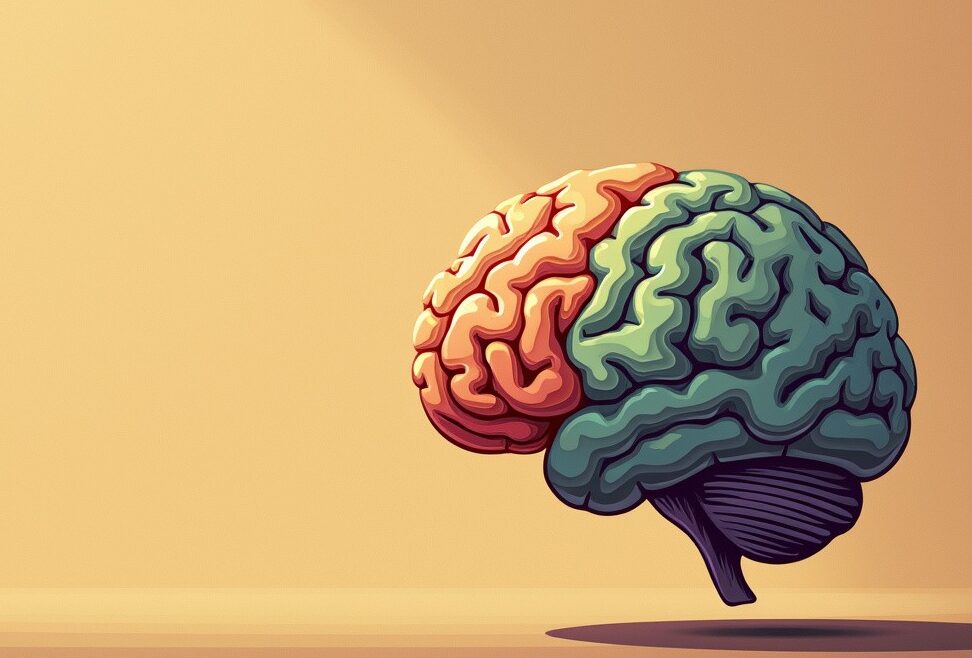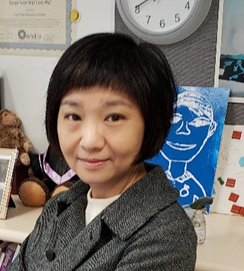心理學,一個既古老又現代的學科,從哲學的母體中誕生,經過幾個世紀的演變,如今已成為一個多元化且實踐性極強的領域。作為一名心理學從業者,我常常思考這門學科的深度與廣度,也不禁感慨它對人類心靈的深刻洞察。今天,我想以一種輕鬆的方式,和大家分享我對心理學的點滴感悟,並探討它在我們日常生活中扮演的重要角色。
心理學的本質:心靈的鏡子
心理學的本質究竟是什麼?對於許多人來說,心理學是關於情緒、行為和思維的研究。這個定義無疑是正確的,但我更喜歡將它比喻為一面鏡子——一面能夠反映我們內心真實狀態的鏡子。心理學不僅僅是對異常行為的矯正或情緒問題的紓解,它更是一門幫助我們發現自我、了解自我的學問。
這面鏡子可以幫助我們更好地理解自己和他人。它讓我們看見那些我們平時無法察覺的內心動力,讓我們意識到潛意識中的想法如何影響我們的選擇和行為。弗洛伊德的心理動力學說明了潛意識的重要性,而現代認知心理學則進一步揭示了我們的思維模式如何塑造我們的情緒和行為。心理學的深層探索,不僅讓我們得以理解過去的創傷和壓力如何影響現在的自我,也讓我們獲得了改變現狀、重塑未來的力量。
從理論到實踐:心理學的多樣性
心理學的魅力在於它的多樣性。我們可以從不同的理論框架來理解人類的行為和心理現象。這些理論有時看似相互矛盾,但它們卻共同構築了我們對心靈的全面理解。
- 認知行為療法 (CBT):這是我最常用的治療方法之一。CBT 聚焦於來訪者的思維模式和行為模式,通過改變負面的自動思維來改變情緒和行為。它實用且具體,特別適用於焦慮、抑鬱等情緒問題。
- 人本主義心理學:這一理論強調個體的潛能和自我實現。卡爾·羅傑斯的無條件積極關注 (unconditional positive regard) 讓我深受啟發,這種非評判性的治療態度讓來訪者能夠在安全的環境中探索內心,並發現自我成長的可能性。
- 心理動力學:弗洛伊德奠定了心理動力學的基礎,儘管他的某些觀點在現代心理學中已被修正或擱置,但潛意識的影響仍不可忽視。心理動力學治療對於那些希望深入探索自身內在衝突和情緒根源的來訪者來說,依然非常有效。
- 正念與冥想:近年來,正念療法的興起讓我看到了心理學與東方哲學的美妙結合。正念強調專注當下、接受內心的所有感受,這對於減少焦慮和壓力有著顯著的效果。當我們能夠在當下安住,心理學的力量便開始發揮作用。
心理學的多樣性意味著它可以根據個體的需求提供多種不同的治療方法。這也是我熱愛這門學科的原因之一——它不僅僅是一套僵化的規則或技術,而是一個充滿創意和智慧的領域,能夠根據不同情境調整治療策略。
心理學與日常生活
心理學並不是一門只屬於實驗室或診療室的學問,它與我們的日常生活密不可分。每個人都會在生活中遇到壓力、焦慮、關係問題或自我懷疑的時刻,而心理學正是幫助我們從這些挑戰中找到出路的指南。
例如,當你遇到壓力時,可能沒有意識到自己的壓力源自於對未來的不確定感。心理學教導我們如何將這種模糊的焦慮具體化,並學會管理它。通過簡單的正念練習,我們可以學會專注於當下,減少對未來的不必要擔憂。
心理學還教會我們如何處理人際關係中的衝突。無論是與伴侶、家人還是同事的關係,衝突往往源於溝通不暢或情感上的誤解。通過學習心理學中的溝通技巧,如積極傾聽、同理心和非暴力溝通,我們可以更好地理解他人的感受,也更容易化解衝突。
心理學的未來:科技與人文的交融
隨著科技的快速發展,心理學的未來充滿了無限可能。人工智能的興起已經開始改變心理健康服務的提供方式,線上心理治療和心理健康應用程式讓更多人能夠方便地獲取幫助。大數據和神經科學的進步,也讓我們對大腦和行為的理解變得更加深入。
然而,在我看來,無論科技如何發展,心理學的核心始終圍繞著人性本身。科技可以幫助我們更好地理解和測量心理現象,但真正的治療和自我發現依然需要人與人之間的關係和連結。無論是治療師與來訪者的互動,還是個人與自我的對話,這種深刻的情感聯繫始終是心理學的核心。
結語
心理學是一門不斷進化的學科,它的多樣性和靈活性讓我在多年來的工作中受益匪淺。它不僅幫助我更好地理解他人,也讓我更加深入地認識自己。無論是在面對來訪者時,還是在日常生活中,我都時刻感受到心理學的力量。
在這段旅程中,我學會了不斷探索、學習和成長。心理學不僅是我的職業,它更是我探索心靈深處、理解人性複雜性的工具。我希望在未來的日子裡,能夠繼續通過這門學科幫助更多的人,並與大家一同探索心靈的無限可能。
Psychology, a discipline both ancient and modern, was born out of philosophy and has evolved over centuries into a diverse and highly practical field. As a psychologist, I often reflect on the depth and breadth of this science, marveling at its profound insights into the human mind. Today, I’d like to take a relaxed approach and share some of my thoughts on psychology, as well as explore the significant role it plays in our everyday lives.
The Essence of Psychology: A Mirror to the Mind
What is the essence of psychology? For many, it is the study of emotions, behavior, and thought processes. While accurate, I prefer to think of psychology as a mirror—a tool to reflect the true state of our inner world. Psychology is not just about correcting abnormal behaviors or alleviating emotional distress. It is also a science that helps us discover and better understand ourselves.
This mirror allows us to gain deeper insight into ourselves and others. It reveals the internal drives we often overlook, making us aware of how subconscious thoughts influence our choices and behaviors. Sigmund Freud’s psychodynamic theory emphasized the importance of the unconscious, while modern cognitive psychology has further uncovered how our thinking patterns shape our emotions and actions. Through deep exploration, psychology not only helps us understand how past traumas and stresses affect our present selves but also empowers us to reshape our future.
From Theory to Practice: The Diversity of Psychology
One of psychology’s greatest appeals lies in its diversity. There are so many theoretical frameworks through which we can understand human behavior and mental phenomena. These theories may sometimes seem contradictory, but together they form a comprehensive understanding of the mind.
- Cognitive Behavioral Therapy (CBT): This is one of the methods I most frequently use. CBT focuses on identifying and changing negative thought patterns and behaviors. It is practical and structured, making it particularly effective for treating anxiety, depression, and other emotional challenges.
- Humanistic Psychology: This approach emphasizes individual potential and self-actualization. Carl Rogers’ concept of unconditional positive regard deeply resonates with me, as this non-judgmental attitude creates a safe space for clients to explore their inner selves and discover new possibilities for growth.
- Psychodynamic Therapy: While Freud laid the foundation for psychodynamic theory, certain aspects of his work have been revised or set aside in modern psychology. Yet, the influence of the unconscious remains undeniable. Psychodynamic therapy is still highly effective for those who wish to delve into their internal conflicts and emotional roots.
- Mindfulness and Meditation: In recent years, the rise of mindfulness-based therapies has shown a beautiful integration of psychology and Eastern philosophy. Mindfulness emphasizes staying present and accepting all internal experiences, which has proven immensely beneficial in reducing anxiety and stress. When we learn to be present, the power of psychology truly begins to reveal itself.
The diversity of psychology means it can offer a wide range of therapeutic approaches tailored to individual needs. This is one of the reasons I love this field—it is not a rigid set of rules or techniques but a creative and insightful discipline that adapts to different contexts.
Psychology in Everyday Life
Psychology is not confined to laboratories or therapy rooms; it is deeply intertwined with our everyday lives. Everyone faces moments of stress, anxiety, relationship issues, or self-doubt, and psychology serves as a guide to help us navigate these challenges.
For instance, when you experience stress, you may not realize that it stems from uncertainty about the future. Psychology teaches us how to identify and manage this type of anxiety. Through simple mindfulness exercises, we can learn to focus on the present and reduce unnecessary worries about the future.
Psychology also teaches us how to handle conflict in relationships. Whether it’s with a partner, family member, or colleague, conflict often arises from poor communication or emotional misunderstandings. By learning communication skills such as active listening, empathy, and nonviolent communication, we can better understand others’ feelings and more easily resolve conflicts.
The Future of Psychology: A Fusion of Technology and Humanity
As technology rapidly advances, the future of psychology is filled with endless possibilities. The rise of artificial intelligence is already transforming how psychological services are delivered, with online therapy and mental health apps making help more accessible. Advances in big data and neuroscience are also giving us deeper insights into the brain and behavior.
However, in my view, no matter how technology evolves, the core of psychology will always revolve around humanity itself. Technology can help us better understand and measure psychological phenomena, but true healing and self-discovery still require human connection. Whether it’s the interaction between therapist and client or the dialogue within oneself, these profound emotional connections remain at the heart of psychology.
Conclusion
Psychology is an ever-evolving field, and its diversity and flexibility have greatly benefited me throughout my career. It has helped me better understand others, while also deepening my understanding of myself. Whether working with clients or navigating everyday life, I constantly feel the power of psychology at play.
Throughout this journey, I have learned to keep exploring, learning, and growing. Psychology is not just my profession—it is a tool that allows me to explore the depths of the human mind and understand the complexities of human nature. I hope to continue using this discipline to help more people in the future and to explore the endless possibilities that lie within the human soul.


